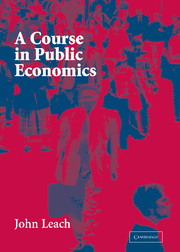Summary
You will put it in the proper Whitehall prose, scabrous, flat-footed, with much use of the passive, will you not? I may have allowed something approaching enthusiasm to creep in.
Dr. Maturin, in Patrick O'Brian's The Yellow AdmiralDo markets work, and if they don't, what should be done about it? This question has been at the center of microeconomics since Adam Smith proposed, in The Wealth of Nations (1776), that each individual's self-interested participation in the market system often promotes the greater good of society. Providing a comprehensive answer to this question has been no easy task. The way in which markets work was not fully articulated until Walras outlined the first general equilibrium model in the early 1870s, and the sense in which market outcomes advance society's interests was not defined until Pareto published his major work in 1909. The principles set out by Walras and Pareto formed the basis of a research program that continued into the second half of the twentieth century, culminating in the Arrow–Debreu model of general equilibrium. This model precisely describes the conditions under which free markets yield a socially desirable outcome. These conditions are very restrictive, leading Stiglitz to comment that “in a sense Debreu and Arrow's great achievement was to find the almost singular set of assumptions under which Adam Smith's invisible hand conjecture is correct.”
- Type
- Chapter
- Information
- A Course in Public Economics , pp. xvii - xxPublisher: Cambridge University PressPrint publication year: 2003



